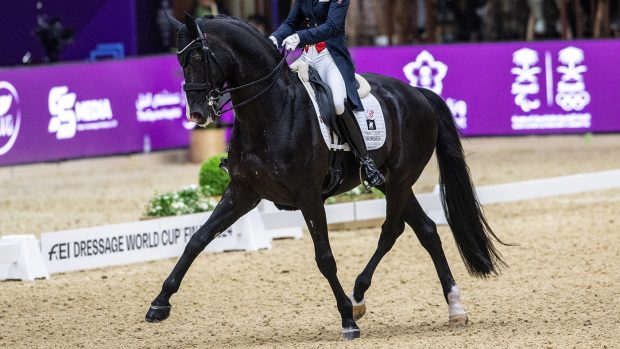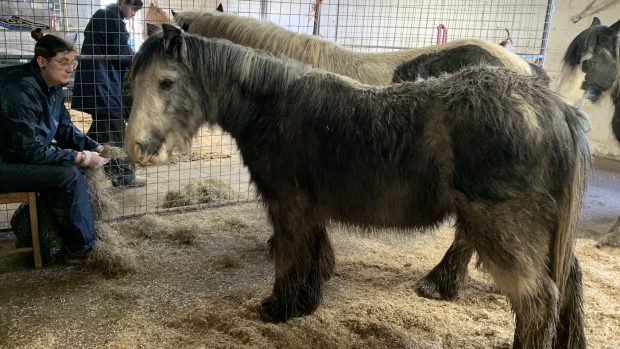A recent scientific study shows that more than two-thirds of working equines are either “thin” or “very thin”, with horses falling more often into the “very thin” category.
The investigation was carried out by the Brooke Hospital for Animals and the University of Bristol Veterinary School and is the largest ever to be conducted amongst equines. Alarmingly, the results prove that the world’s working horses, donkeys and mules are suffering malnutrition on an appalling scale.
With an estimated 90 million working equines in the developing world, and an average of six people depending on each animal, immediate action is required to improve nutrition.
“Action to improve nutrition will not only prevent untold animal suffering, but will also safeguard the future of millions of people who are dependent on these animals for their livelihoods”, says the Brooke Hospital.
The results of the study have prompted the Brooke to launch a major appeal to help tackle malnutrition.
Bill Swann, Brooke’s head of international development and one of the UK’s leading vets, said: “Brooke vets are used to seeing working horses and donkeys reduced to skin and bone, so weak that they can barely walk but this study has now revealed the huge scale of the problem.
“Worryingly, the study also confirmed that thin animals have more skin lesions and wounds, possibly because they have less natural padding to protect them from pressure and friction from their harnesses.”
The study suggests that it is not a lack of care and food that has led to this problem but the shortage of essential nutrients being fed. The Brooke has introduced a programme of education to tackle malnutrition at grass roots level. Animal management classes will show owners the best ways to combine three feeds such as barley, maize and bran, with green fodder. Owners will also be encouraged to feed their animals from a container or feedbag rather than the ground, to avoid contamination from dirt or worm eggs.
The positive effects of Brooke’s work are already being noted. In Mwea, Kenya, Brooke staff recently spotted people carrying “packed lunches” for their donkeys.
Critically malnourished animals are currently being treated in Brooke’s clinics and by its mobile veterinary teams. Multi-vitamin injections, nutritional and mineral supplements are administered to the emaciated animals and, if necessary, they can remain in Brooke’s field clinics until they are fit to return to work.
Abdul Matin, a tonga cart driver with a family of 10 to support took his horse to the Brooke’s clinic Peshawar, Pakistan, when it became too weak to work.
“My horse remained in the clinic for more than one-and-a-half months, and was given a whole range of good food,” he says, “I didn’t think my horse was going to recover, but while it was at the clinic I saw that its health was improving day by day. I pay a big thanks to the Brooke who saved my horse.”
Individuals who would like to make a donation to help the Brooke’s ongoing work can visit: www.thebrooke.org




